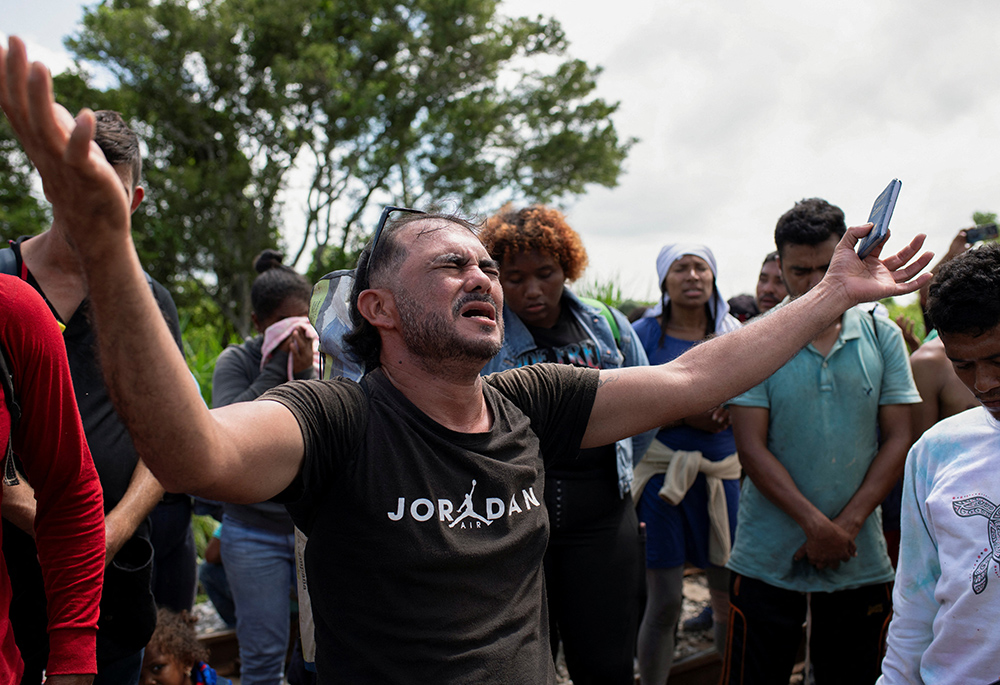
A migrant prays Aug. 22 in Sayula de Aleman, Mexico, along with others during a pause on their journey toward the U.S. border. (OSV News/Reuters/Angel Hernandez)
A few days ago, I met a woman at a spirituality retreat who told me that upon arriving in this country as an immigrant, she had felt lonely and disconnected, overwhelmed by uncertainty. However, when she was welcomed by a group of migrant women who shared her faith, everything changed. In her own words: "I felt accompanied, embraced." It was in this group that, for the first time, she felt a sense of belonging and communion in this country.
This testimony reflects a profound truth: what immigrants seek upon arriving in a new country is not just a place to work or live, but a space where they can feel they belong, where they are not strangers. Unfortunately, narratives that dehumanize migrants — such as Donald Trump's recent claim during the presidential debate that immigrants in Springfield, Ohio, were eating dogs and cats — perpetuate the alienation they experience.
Such caricatures call to mind the figure of Caliban, the semi-human character in Shakespeare's "The Tempest." Caliban is described as a savage and deformed being, often referred to as "vile" or "slave," and interpreted by some as a symbol of colonized peoples.
Caliban's dehumanization reflected the broader colonial attitude of superiority that framed native peoples as inherently inferior, just as today's hateful narratives distort and reduce the humanity of migrants.
Today, we see how these derogatory metaphors return after hundreds of years and are used to degrade migrants, evoking the same narratives that were once applied to Indigenous peoples in America. This cycle of dehumanization continues to justify disengagement and rejection, rather than recognizing the dignity and humanity of those who come seeking a home and a community.
Advertisement
The word "accompany" comes from the Latin com- and panis, which mean "with" and "bread." Immigrants deserve more than physical nourishment: like all of us, they long for the bread of accompaniment, of dignity, of faith.
In the same way, immigrants need a church that walks with them, that listens to them and shares with them the bread of dignity. The passage of the disciples on the road to Emmaus (Luke 24:13-35) reflects this idea of divine accompaniment. Jesus walks with them, listening to their doubts and concerns, but only reveals himself in the breaking of the bread.
Jesus, like his Father, reveals himself in the experience of walking, of migrating. Each migrant that the church accompanies is an encounter with a God who constantly crosses borders. In this context, the church is called to be a place of hospitality. Beyond election season, beyond the fact that the migration issue is cynically used as political capital, the church has the responsibility to offer the bread that migrants truly need: respect for their inherent human essence and the certainty that they are not alone.
This call to accompany is not optional, nor does it depend on which party or candidate we support. If we are truly the body of Christ, we must embody that presence that does not abandon, that is willing to walk with those who suffer and that, in the breaking of the bread, reveals the unconditional love of God.
May the church not limit itself to responding with defensive speeches or stances toward migration issues, but instead become a truly living community, offering the bread of hope and the welcoming embrace that so many migrants long for.








